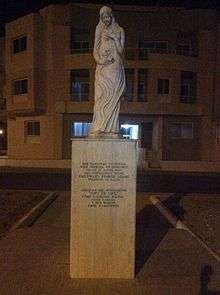Abortion in Malta
The de jure legal status of abortion in Malta holds that the practice is illegal. Malta is the only country in the European Union to prohibit abortion entirely.[1] However, the law allows for the principle of double effect.[1]

The Criminal Code states:[2]
"(1) Whosoever, by any food, drink, medicine, or by violence, or by any other means whatsoever, shall cause the miscarriage of any woman with child, whether the woman be consenting or not, shall, on conviction, be liable to imprisonment for a term from 18 months to three years"; and
"(2) The same punishment shall be awarded against any woman who shall procure her own miscarriage, or who shall have consented to the use of the means by which the miscarriage is procured."
In 2005 Tonio Borg, a Maltese politician, sought to amend the constitution to completely ban abortion.[3]
It is estimated that anywhere between 300 and 400 Maltese women travel abroad to have abortions each year, mostly to the UK (about 60 per year) and Italy, with Germany, the Netherlands, and Belgium being some of the other destinations as well.[4] This estimate means that Maltese women have abortions about as often as the EU average, despite Malta being the only EU country which bans the procedure (the rate for Malta is between 3.6 and 4.7 per thousand women; the EU average is 4.4).[4]
See also
- Abortion in Poland
- Abortion in Ireland
- Abortion in Northern Ireland
References
- "Malta now only EU country apart from Northern Ireland without life-saving abortion law". Malta Independent. Retrieved 6 September 2014.
- "What does the law actually say?". Malta Humanist Association. Retrieved November 12, 2016.
- "Plans for abortion law to be entrenched in Constitution". Times of Malta. May 7, 2005.
- "300 to 400 Maltese Women Go Abroad For An Abortion Each Year". Times of Malta. February 4, 2018.